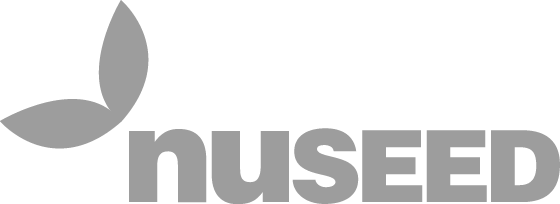Research
Our research component is made up of five inter-disciplinary teams with research objectives tailored to maximize feedstock and fuel production, generate a database of knowledge for near future policy development, and explore commercialization avenues of fuel and coproducts from carinata.
The main objective of this team is to generate feedstock supply in the SE US using superior, high yielding carinata genotypes and best management practices (BMPs) and risk management tools tailored toward sustainable, high yielding production.
Specific Objectives include:
- Identification of optimum genotypes and phenotypes for different ecotypes in the SE US
- Fertility management for sustainable carinata production
- Adapting carinata efficiently to existing cropping systems in the SE US (enhancing system fit)
- Developing integrated pest management strategies to maximize yield potential and enhance system fit
- Demonstrating high yield production in select locations across AL, FL, and GA using currently identified superior genotypes and best management practices
The main objective of this team is to explore applications of carinata seed meal as animal feed and for value added products to enhance overall economic value of carinata.
Specific Objectives include:
- Nutritional evaluation of carinata protein meal with low antinutritional factors in poultry
- Effect of antinitritional factors (glucosinolates) in carinata on beef cattle performance
- Recovery and valorization of co-product streams from carinata seed meal
- Recovery of value added phenolic from carinata seed meal
The main objective of this team is to devise strategies to develop a supply chain that is economically and environmentally resilient to supply and demand fluctuations in the fuel, bioproducts and coproducts market.
Specific Objectives include:
- Generate a feasibility analysis for post-harvest logistics and infrastructure development
- Secure a resilient and assured 24/7 feedstock supply
- Enhance values chain by seeking a product mix between high value and low volume (value added products) or low value/high volume (advanced jet and diesel) and seed meal to maximize facility profits
The main objective of this team is to conduct a “seed to ignition” life cycle analysis of agricultural and industrial processes involved in the production and distribution of feedstock, fuel and fuel and meal coproducts.
Specific objectives include:
- Systems modeling of carinata to integrate effects of cultivars, management practices, weather and soil type over multiple years
- Economic modeling assessment of carinata integrated into existing cropping systems and best management practices using the WholeFarm tool
- A hydrological modeling of impact of carinata production on water quality and quantity using the Soil and Water Assessment Tool (SWAT)
- Life cycle analysis and site suitability analysis to determine nature and magnitude of environmental and social impact of carinata production especially with respect to land use change as well as post-harvest logistics, fuel and coproduct production and distribution
The main objective of this team is to scale up carinata jet fuel production by identifying commercial pathways in the region, and optimize recovery of valuable bioproducts with known market potential.
Specific objectives include:
- Demonstrate hydrothermal cleanup and rapid hydrolysis for unrefined crude carinata triglyceride and mixtures of carinata and other supplementary feedstock (phased approach during initial expansion to commercial scale)
- Pilot scale production and testing of CH crude oil followed by hydro treating and distillation into fuels meeting current and proposed specifications. This will be distributed to potential commercial and military off takers
- Recovery and testing of a suite of fuel co-products ranging in application in various industries (glycerin, erucic acid, clean free fatty acids, linear alkyl benzene, renewable acetic acid
-
Feedstock
Development
-
The main objective of this team is to generate feedstock supply in the SE US using superior, high yielding carinata genotypes and best management practices (BMPs) and risk management tools tailored toward sustainable, high yielding production.
Specific Objectives include:
- Identification of optimum genotypes and phenotypes for different ecotypes in the SE US
- Fertility management for sustainable carinata production
- Adapting carinata efficiently to existing cropping systems in the SE US (enhancing system fit)
- Developing integrated pest management strategies to maximize yield potential and enhance system fit
- Demonstrating high yield production in select locations across AL, FL, and GA using currently identified superior genotypes and best management practices
-
Carinata Meal
Efficiency
-
The main objective of this team is to explore applications of carinata seed meal as animal feed and for value added products to enhance overall economic value of carinata.
Specific Objectives include:
- Nutritional evaluation of carinata protein meal with low antinutritional factors in poultry
- Effect of antinitritional factors (glucosinolates) in carinata on beef cattle performance
- Recovery and valorization of co-product streams from carinata seed meal
- Recovery of value added phenolic from carinata seed meal
-
Supply Chain/
Commercialization/
Policy Engagement -
The main objective of this team is to devise strategies to develop a supply chain that is economically and environmentally resilient to supply and demand fluctuations in the fuel, bioproducts and coproducts market.
Specific Objectives include:
- Generate a feasibility analysis for post-harvest logistics and infrastructure development
- Secure a resilient and assured 24/7 feedstock supply
- Enhance values chain by seeking a product mix between high value and low volume (value added products) or low value/high volume (advanced jet and diesel) and seed meal to maximize facility profits
-
System Metrics
& Modeling
-
The main objective of this team is to conduct a “seed to ignition” life cycle analysis of agricultural and industrial processes involved in the production and distribution of feedstock, fuel and fuel and meal coproducts.
Specific objectives include:
- Systems modeling of carinata to integrate effects of cultivars, management practices, weather and soil type over multiple years
- Economic modeling assessment of carinata integrated into existing cropping systems and best management practices using the WholeFarm tool
- A hydrological modeling of impact of carinata production on water quality and quantity using the Soil and Water Assessment Tool (SWAT)
- Life cycle analysis and site suitability analysis to determine nature and magnitude of environmental and social impact of carinata production especially with respect to land use change as well as post-harvest logistics, fuel and coproduct production and distribution
-
Fuel & Bioproduct
Development
-
The main objective of this team is to scale up carinata jet fuel production by identifying commercial pathways in the region, and optimize recovery of valuable bioproducts with known market potential.
Specific objectives include:
- Demonstrate hydrothermal cleanup and rapid hydrolysis for unrefined crude carinata triglyceride and mixtures of carinata and other supplementary feedstock (phased approach during initial expansion to commercial scale)
- Pilot scale production and testing of CH crude oil followed by hydro treating and distillation into fuels meeting current and proposed specifications. This will be distributed to potential commercial and military off takers
- Recovery and testing of a suite of fuel co-products ranging in application in various industries (glycerin, erucic acid, clean free fatty acids, linear alkyl benzene, renewable acetic acid



















